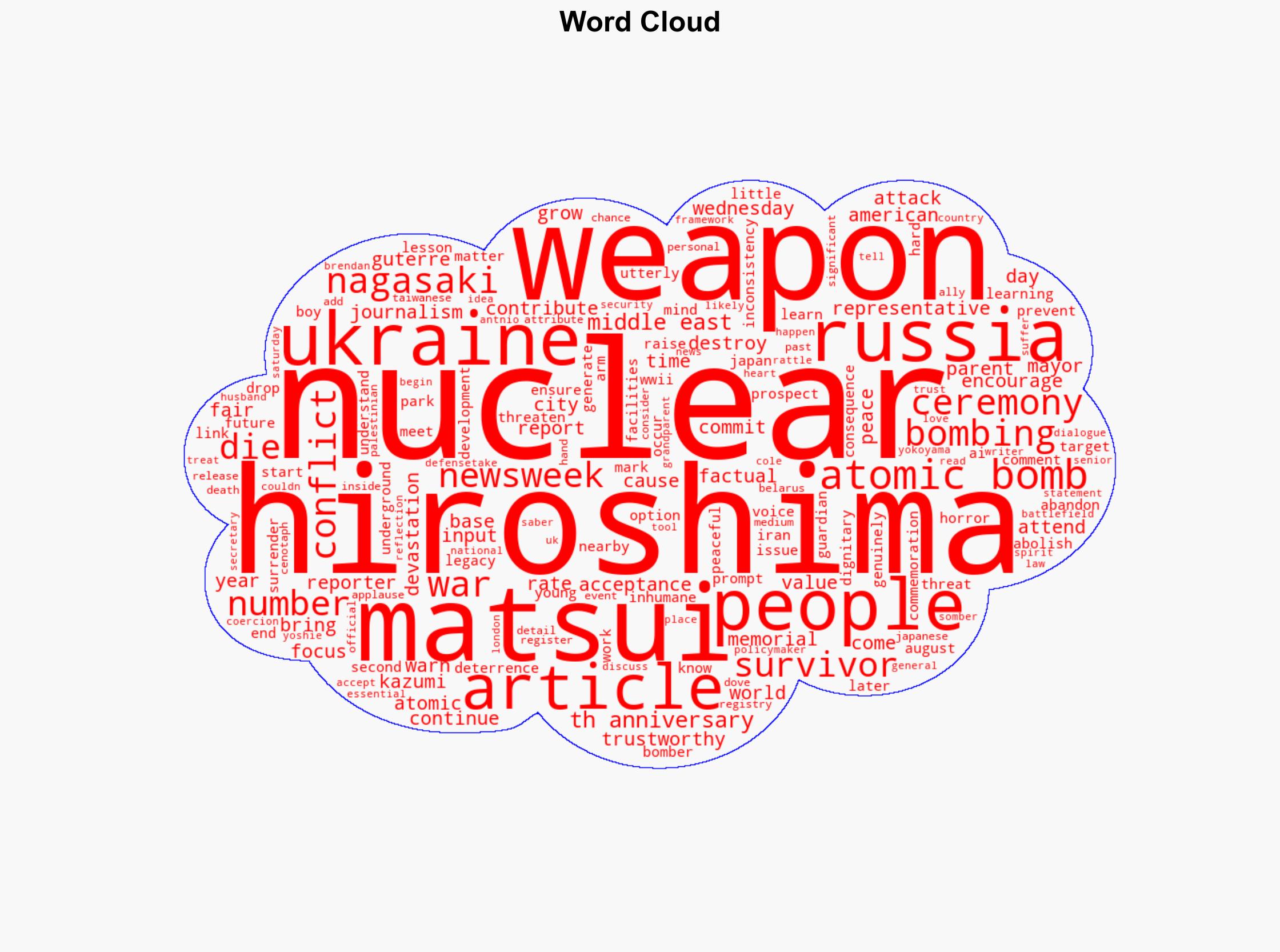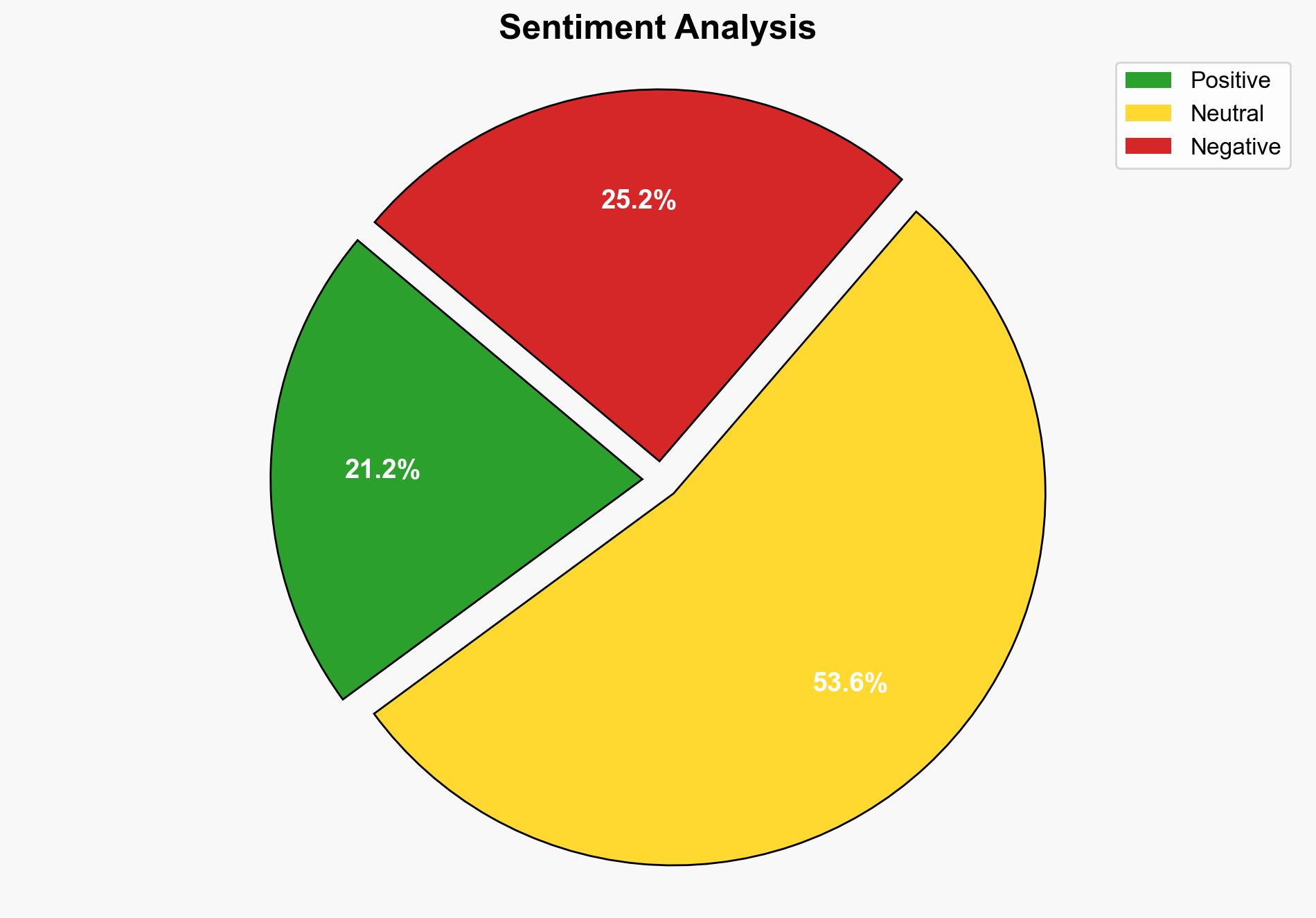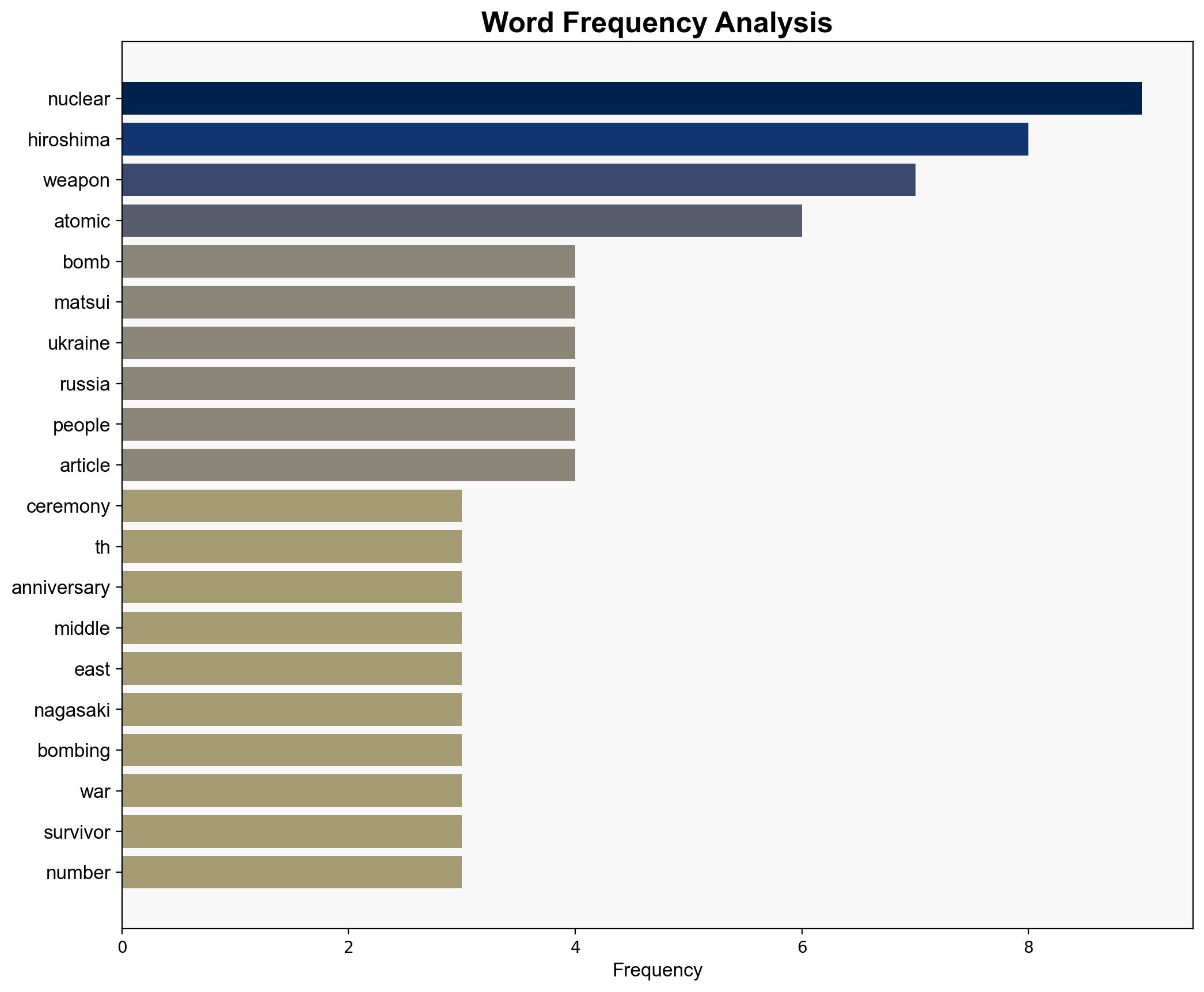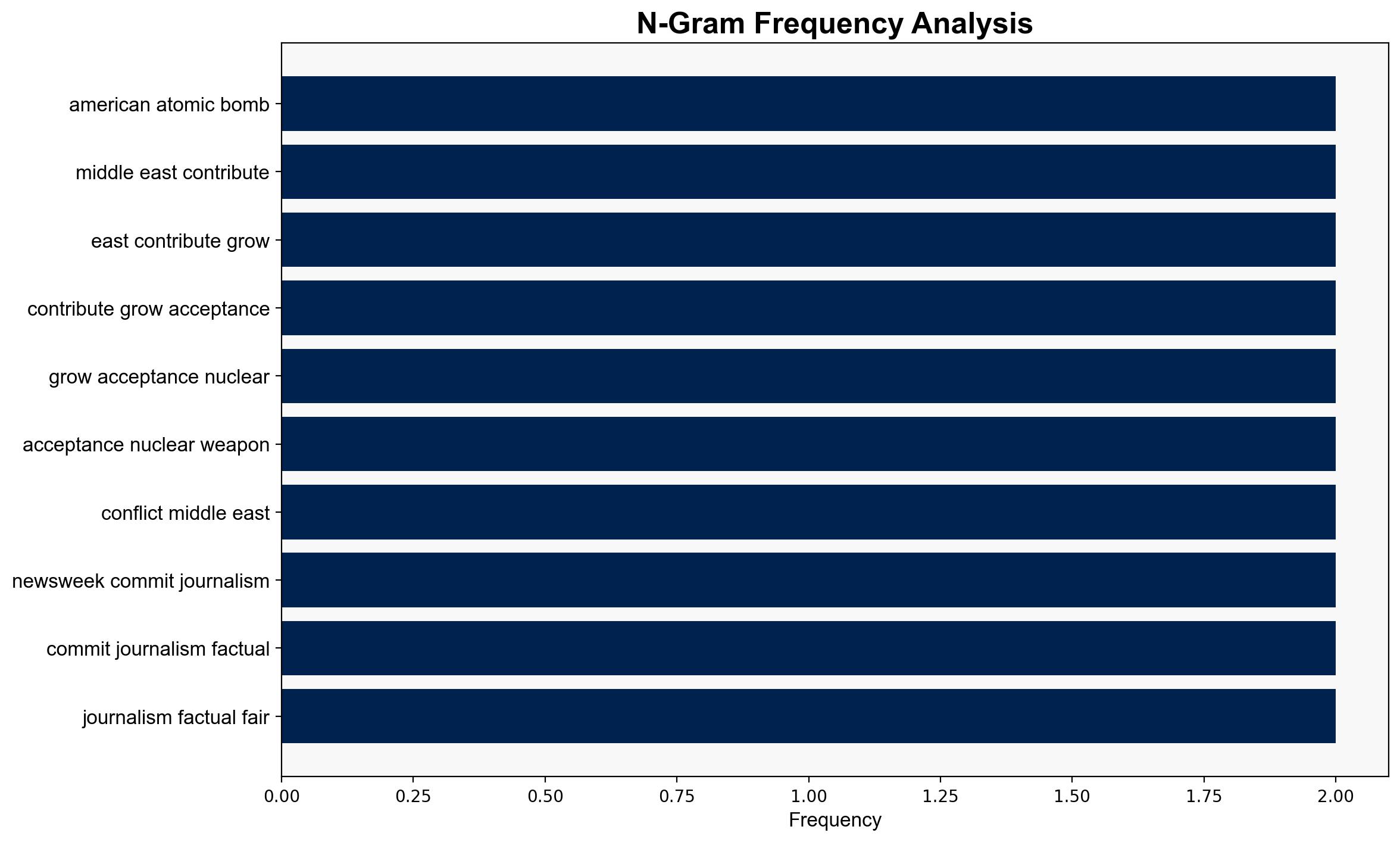Hiroshima Mayor Issues Nuclear Bomb Warning to West – Newsweek
Published on: 2025-08-06
Intelligence Report: Hiroshima Mayor Issues Nuclear Bomb Warning to West – Newsweek
1. BLUF (Bottom Line Up Front)
The most supported hypothesis is that the Hiroshima Mayor’s warning reflects a growing international concern about nuclear proliferation due to ongoing conflicts in Ukraine and the Middle East. This concern is amplified by the historical context of Hiroshima and Nagasaki, emphasizing the catastrophic consequences of nuclear weapons. Confidence level: Moderate. Recommended action: Increase diplomatic efforts to promote nuclear disarmament and enhance dialogue among nuclear and non-nuclear states.
2. Competing Hypotheses
1. **Hypothesis A**: The Hiroshima Mayor’s warning is primarily a symbolic gesture aimed at commemorating the anniversary of the atomic bombings and reinforcing the historical narrative against nuclear weapons.
2. **Hypothesis B**: The warning is a strategic response to current geopolitical tensions, particularly the conflicts in Ukraine and the Middle East, which are perceived to be increasing the acceptance and potential use of nuclear weapons.
Using ACH 2.0, Hypothesis B is better supported due to the explicit references to current conflicts and nuclear threats, which align with the Mayor’s call for a renewed focus on nuclear disarmament.
3. Key Assumptions and Red Flags
– **Assumptions**: It is assumed that the Mayor’s statements are representative of broader public and governmental sentiment in Japan. Another assumption is that the international community is receptive to calls for nuclear disarmament.
– **Red Flags**: The presence of representatives from Russia and Belarus at the ceremony could indicate potential diplomatic signaling or attempts to influence narratives. The absence of detailed responses from Western policymakers may suggest a lack of engagement or differing priorities.
4. Implications and Strategic Risks
The Mayor’s warning highlights the risk of nuclear proliferation and potential escalation in regions of conflict. The symbolic nature of Hiroshima’s history could galvanize public opinion and influence policy. However, failure to address these warnings could lead to increased nuclear armament and heightened geopolitical tensions, particularly if diplomatic channels remain underutilized.
5. Recommendations and Outlook
- Enhance diplomatic initiatives focused on nuclear disarmament and non-proliferation, particularly in regions experiencing conflict.
- Engage with international organizations to strengthen treaties and agreements aimed at reducing nuclear arsenals.
- Scenario Projections:
- Best Case: Successful international dialogue leads to renewed disarmament efforts and decreased nuclear tensions.
- Worst Case: Escalation of conflicts results in increased nuclear threats and potential use.
- Most Likely: Continued diplomatic stalemate with sporadic progress in disarmament discussions.
6. Key Individuals and Entities
– Kazumi Matsui (Hiroshima Mayor)
– António Guterres (UN Secretary-General)
– Representatives from Russia, Belarus, Taiwan, and Palestine
7. Thematic Tags
national security threats, nuclear proliferation, geopolitical tensions, disarmament diplomacy




